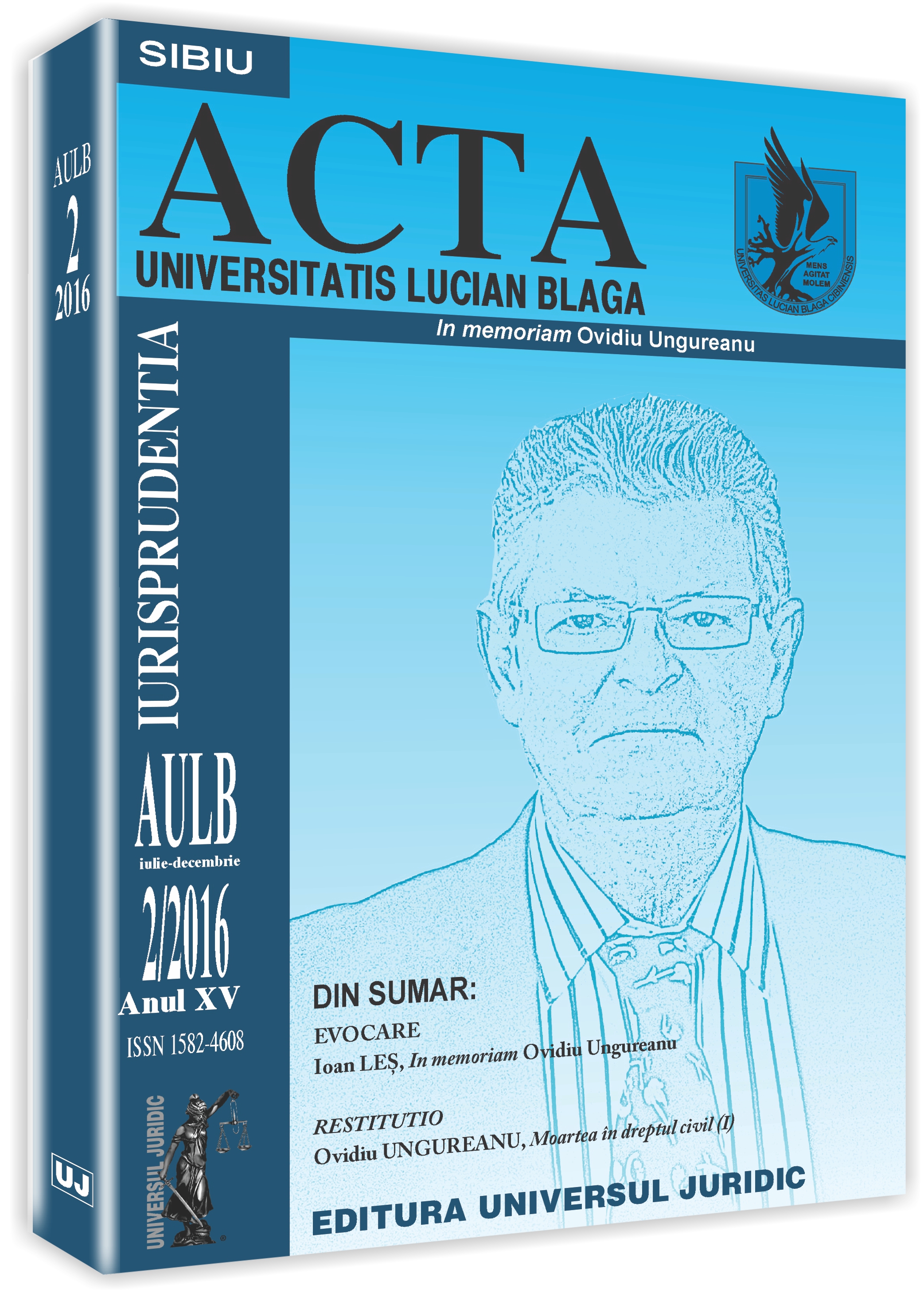Între consacrare şi secularizare. Statutul juridic al asistenţei religioase din spaţiul public românesc
Between consecration and secularization. The legal status of religious assistence in the romanian public space
Author(s): Emanuel TăvalăSubject(s): Law, Constitution, Jurisprudence
Published by: Universul Juridic
Keywords: military chaplaincy; European comparative law; religious freedom; secularization; freedom of conscience;
Summary/Abstract: There is concern in many legal systems over the meaning and the implications of the term religion which the law contains. This concern is manifested in those borderline cases in which new religious movements come to the law seeking legal recognition as religious communities or groups. In this article we will deal with the presence of religion through the chaplains in the army, one of the oldest manifestations of religion in the society. We will not deal with the institution in the US legal system which is probably best organized and present with the troops all over the world. We will deal here with the European countries’ situation and laws. One commonality across most liberal democracies today is that their armed forces dispose of military chaplains. Religious freedom for soldiers who have enlisted or are drafted into an organization that as a total institution is not always capable of providing sufficient private sphere for such religious exercise is the main argument made in state-church regimes as different as the French, the German, the Romanian or the Dutch one. In the military, religious freedom is mostly defined as a set of rights to practice one’s religion including the right to access spiritual care. One specificity of the military is that in all these European countries the religious rights of soldiers can be limited if military arises. Second, if there is a right to access spiritual care, this spiritual care is not necessarily denomination-specific even though all of these liberal democracies dispose of at least two different chaplaincies. From this perspective it may not astonish that in France as well as in the Netherlands the Jewish chaplaincy naturally felt obliged to offer spiritual care to Muslim soldiers who accepted this service during times before a Muslimmilitary chaplaincy was set up.
Journal: Acta Universitatis Lucian Blaga. Iurisprudentia
- Issue Year: 2016
- Issue No: 02
- Page Range: 133-151
- Page Count: 19
- Language: Romanian
- Content File-PDF

